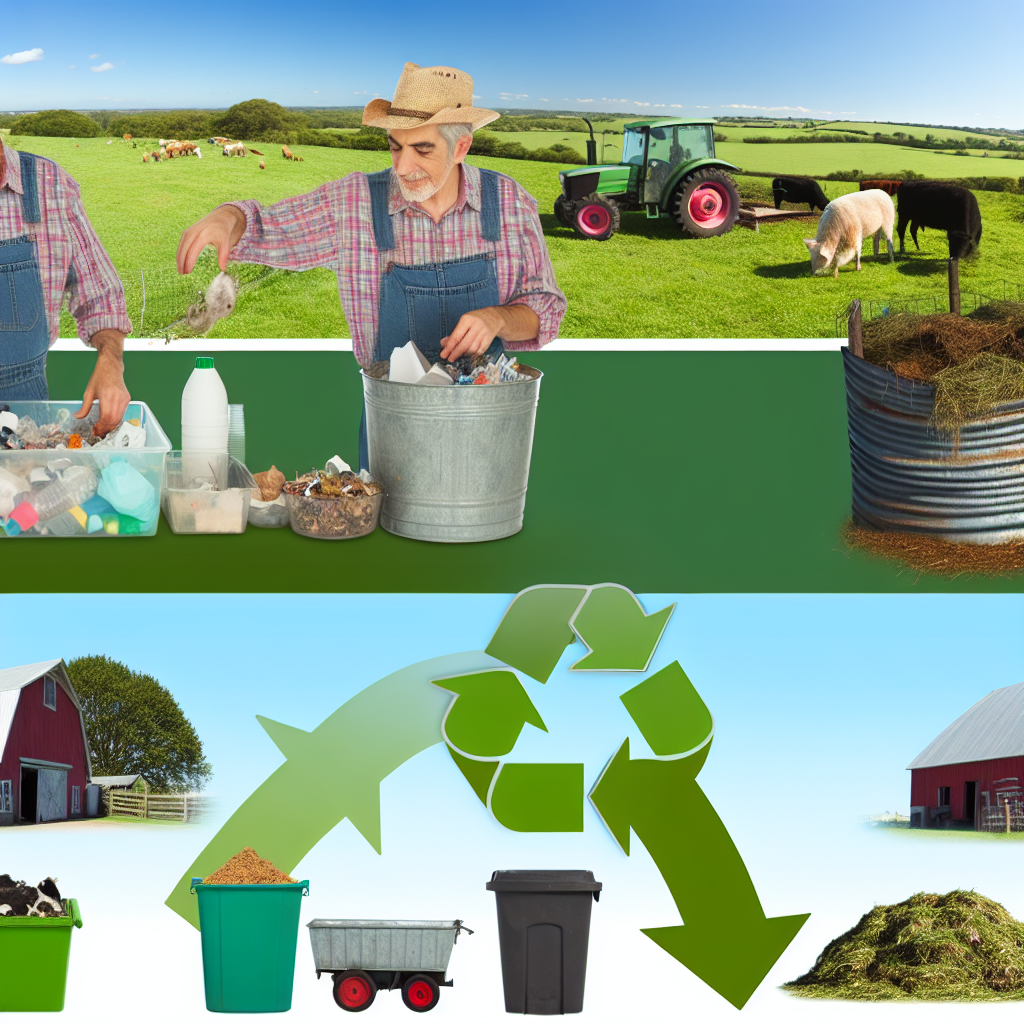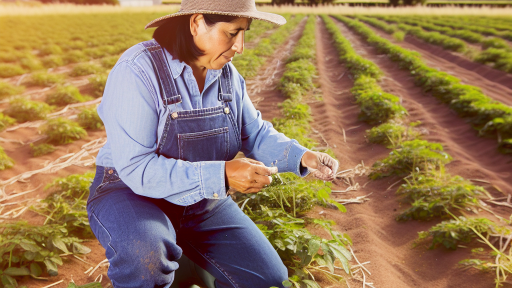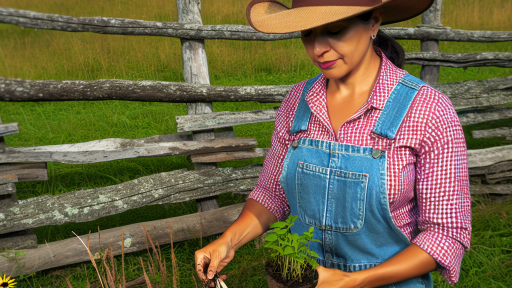Introduction to Recycling Systems in Agriculture
Implementing recycling systems on a farm greatly enhances sustainability.
Recycling practices help reduce waste and conserve valuable resources.
Moreover, they contribute to environmental protection and soil health.
Farmers benefit from adopting systematic approaches to recycling.
This section discusses the importance and methods of agricultural recycling.
Why Recycling Matters on the Farm
Recycling decreases the amount of waste that ends up in landfills.
It also lowers greenhouse gas emissions associated with waste disposal.
Recycling enriches soil health by returning nutrients back to the earth.
Farmers can utilize organic waste to create compost that boosts productivity.
Types of Materials to Recycle
A variety of materials can be recycled on a farm.
- Organic waste, such as crop residues and food scraps.
- Plastic containers used for fertilizers and pesticides.
- Boxes and cartons that deliver seeds and other supplies.
By identifying recyclable materials, farmers can significantly reduce their environmental footprint.
Implementing a Recycling Plan
First, assess the types of waste produced on the farm.
Next, determine what items are recyclable and how they can be processed.
Establish a collection system for easy sorting and access to recycling bins.
Training staff in proper recycling techniques is essential.
Transform Your Agribusiness
Unlock your farm's potential with expert advice tailored to your needs. Get actionable steps that drive real results.
Get StartedFinally, monitor and evaluate the effectiveness of the recycling plan regularly.
Benefits of Implementing Recycling Systems on Farms
Enhancing Environmental Sustainability
Recycling systems promote environmental sustainability on farms.
They reduce waste and lower pollution levels.
Moreover, recycling helps conserve natural resources.
Improving Economic Efficiency
Implementing recycling systems can significantly cut costs.
Farmers can reuse materials, which saves money.
Additionally, this practice can open new revenue streams.
Selling recyclable materials can boost farm income.
Boosting Farm Productivity
Efficient recycling practices can enhance productivity.
By reusing materials, farmers can streamline operations.
This leads to less downtime and more efficient labor use.
Fostering Community Engagement
Recycling initiatives can engage local communities.
They create opportunities for collaboration and education.
Community involvement promotes awareness and stewardship.
Supporting Regulatory Compliance
Many regions now mandate recycling protocols for farms.
By implementing recycling, farms ensure compliance with regulations.
This minimizes legal risks and potential fines.
Enhancing Farm Reputation
Adopting recycling systems boosts a farm’s public image.
Consumers increasingly prefer environmentally friendly practices.
A positive reputation can attract more customers.
Types of Materials Suitable for Recycling on a Farm
Organic Waste
Organic waste forms a significant part of farm recycling efforts.
It includes crop residues, livestock manure, and plant trimmings.
This material can be composted to enrich soil quality.
Composting also reduces methane emissions from landfills.
Showcase Your Farming Business
Publish your professional farming services profile on our blog for a one-time fee of $200 and reach a dedicated audience of farmers and agribusiness owners.
Publish Your ProfilePlastic Items
Farmers often use various plastic items in their operations.
Examples include feed bags, plastic containers, and irrigation tubing.
These materials can be collected and sent to recycling centers.
Transitioning to recyclable plastics is also encouraged.
Metal Containers
Metal containers are common on farms for storing supplies.
Examples include cans, barrels, and old machinery parts.
These items can be recycled for their metal content.
This practice reduces waste and saves energy in production.
Glass Bottles and Jars
Many farmers use glass bottles and jars for various purposes.
Recycling glass reduces the need for new raw materials.
Moreover, it conserves energy compared to producing new glass.
Ensure glass is clean and free from contaminants before recycling.
Electronic Waste
Electronic devices also have a place on the farm.
Examples include outdated machinery and irrigation controllers.
Proper disposal and recycling can prevent harmful chemicals from entering the soil.
Look for local e-waste recycling programs for safe disposal options.
Find Out More: Innovative Practices for Carbon Sequestration in Farming
Steps to Assess Current Waste Management Practices
Identify Waste Streams
Begin by identifying all waste streams on your farm.
Consider organic waste, packaging, and hazardous materials.
Next, map out the sources of these wastes.
This analysis helps you understand waste composition better.
Evaluate Current Practices
Review your existing waste management practices.
Look into collection, storage, and disposal methods.
Identify areas where practices can improve.
Additionally, assess compliance with local regulations.
Engage Farm Staff
Involve your staff in discussions about waste management.
Gather their insights on current practices and challenges.
Encourage suggestions for improving the systems in place.
This collaboration builds a culture of sustainability.
Monitor Waste Generation
Implement a tracking system for waste generation.
Record the quantity and type of waste produced weekly.
This data provides a baseline for future assessments.
Analyze Environmental Impact
Consider the environmental impact of your waste management system.
Evaluate greenhouse gas emissions and resource depletion.
This analysis guides you to more sustainable practices.
Set Improvement Goals
Based on your assessment, establish clear improvement goals.
Define measurable targets for waste reduction and recycling.
Set deadlines for achieving these targets as well.
Seek Expert Advice
Consult with waste management experts if necessary.
They can provide tailored strategies for your farm.
Showcase Your Farming Business
Publish your professional farming services profile on our blog for a one-time fee of $200 and reach a dedicated audience of farmers and agribusiness owners.
Publish Your ProfileUtilizing their expertise helps to enhance your plan.
Implement Changes
Start implementing recommended changes gradually.
Ensure your staff is trained on new procedures.
Monitor the effectiveness of these changes over time.
Review and Adjust Regularly
Establish a schedule for regular review of practices.
Adjust your strategies based on new data and feedback.
This ongoing process ensures continuous improvement.
Find Out More: Carbon Sequestration Practices for Sustainable Farms
Designing an Effective Recycling System for Your Farm
Assessing Your Current Waste Stream
Begin by evaluating the types of waste generated on your farm.
Identify organic waste, plastics, and metal that accumulate regularly.
This assessment helps you understand how to manage waste effectively.
Engage your team in this evaluation process for diverse insights.
Establishing Clear Goals
Set specific recycling goals to improve waste management on your farm.
For example, aim to reduce plastic waste by a certain percentage.
Additionally, strive to compost a defined volume of organic material.
Clear goals guide your recycling efforts and assess progress over time.
Creating an Efficient Recycling Layout
Designate areas for different types of recyclable materials.
Label each area clearly to facilitate easy sorting by your team.
Include bins for plastics, metals, and organic waste in your layout.
This organization streamlines the recycling process on your farm.
Implementing Employee Training Programs
Conduct training sessions to educate your staff about recycling practices.
Explain the importance of reducing waste in farming operations.
Include hands-on training about sorting recyclable materials correctly.
Regular updates keep the team informed about best practices.
Partnering with Local Recycling Facilities
Establish relationships with nearby recycling services.
Research facilities that specialize in agricultural waste recycling.
Collaborate with them to create a seamless material drop-off system.
Regular communication ensures effective disposal and recycling options.
Monitoring and Evaluating Progress
Regularly assess the effectiveness of your recycling system.
Track the volume of materials recycled over time.
Use the collected data to make informed adjustments as necessary.
Involve your team in discussions regarding improvements and challenges.
Encouraging a Culture of Sustainability
Promote a culture of sustainability among employees.
Encourage innovative thinking about waste reduction on the farm.
Celebrate successes and share ideas for further improvements.
A supportive environment fosters continuous growth in recycling methods.
Uncover the Details: Sustainable Farming Practices Boosting Biodiversity

Incorporating Local Partnerships for Successful Recycling
Identifying Potential Partners
Start by identifying local organizations interested in recycling initiatives.
Look for businesses, nonprofits, or government agencies that focus on sustainability.
These organizations might already have successful programs in place.
Showcase Your Farming Business
Publish your professional farming services profile on our blog for a one-time fee of $200 and reach a dedicated audience of farmers and agribusiness owners.
Publish Your ProfileEngage with agricultural extension services for additional resources.
Building Collaborative Relationships
Next, reach out to engage potential partners in dialogue.
Discuss common goals and interests regarding recycling.
Building trust and transparency is essential for a successful partnership.
Consider hosting meetings to brainstorm ideas and share methodologies.
Creating Formal Agreements
Once relationships are established, create formal agreements for collaboration.
Document roles, responsibilities, and expectations for all parties involved.
This formalization ensures commitment to the recycling initiatives.
Revisit and revise the agreements as necessary to adapt to changing needs.
Implementing Joint Programs
Develop joint programs leveraging each partner’s strengths.
Share resources such as equipment and vehicles for collection.
Utilize combined efforts to educate the community about recycling best practices.
Regularly assess the impact and outcomes of these joint programs.
Celebrating Successes Together
Publicly celebrate milestones and successes achieved through collaborations.
Host events to showcase recycling efforts and share stories.
Highlight the positive changes in the community due to these partnerships.
Recognizing achievements boosts morale and encourages ongoing participation.
See Related Content: Choosing the Right IPM Tools for Your Farm
Monitoring and Evaluating the Impact of Recycling Initiatives
Setting Clear Objectives
Establishing clear objectives is essential for any recycling initiative.
Define what you want to achieve through recycling.
Common goals include reducing waste and increasing recycling rates.
Please involve your team in the goal-setting process.
Data Collection Methods
Implement effective data collection methods to monitor progress.
Consider using surveys to gauge community engagement.
Utilize weight measurement for collected recyclable materials.
Additionally, track the reduction of waste in landfills.
Regular Monitoring and Review
Regularly monitor your recycling systems for effectiveness.
Schedule periodic reviews to assess progress towards goals.
Involve all stakeholders in these reviews for comprehensive feedback.
Adapt your strategies based on the findings of these reviews.
Assessing Environmental Impact
Evaluate the environmental impact of your recycling initiatives.
Measure changes in local pollution levels due to reduced waste.
Analyze improvements in ecosystem health linked to recycling.
Utilize external reports for additional validation when needed.
Community Feedback and Engagement
Gather community feedback to evaluate public perception.
Conduct focus groups to gauge the community’s response.
Encourage suggestions for improving recycling systems.
Implement changes based on community input to ensure engagement.
Continuous Improvement
Establish a culture of continuous improvement in recycling efforts.
Regularly update recycling practices based on new research.
Showcase Your Farming Business
Publish your professional farming services profile on our blog for a one-time fee of $200 and reach a dedicated audience of farmers and agribusiness owners.
Publish Your ProfileStay informed about innovative recycling technologies.
Encourage ongoing training for staff on best practices.
Case Studies: Successful Recycling Systems in Modern Agriculture
Overview of Successful Farms
Many farms have successfully implemented recycling systems.
Their innovative approaches showcase sustainability in agriculture.
These farms serve as excellent case studies for others.
Farm #1: Green Meadows Organic Farm
Green Meadows focuses on composting organic waste.
This includes kitchen scraps and crop residues.
They transform waste into nutrient-rich compost.
This compost enhances soil quality and yields.
Farmers report increased plant health and productivity.
Farm #2: Sunrise Dairy
Sunrise Dairy employs a comprehensive recycling system.
They convert manure into biogas for energy.
This system reduces waste and lowers energy costs.
Additionally, the waste byproduct returns to the fields.
This practice enriches the soil with essential nutrients.
Farm #3: Harvest Acres Vineyard
Harvest Acres Vineyard uses a closed-loop irrigation system.
They recycle water from their grape processing facility.
This method significantly conserves water resources.
Moreover, it reduces expenses related to water acquisition.
The vineyard promotes environmental sustainability through innovation.
Common Strategies Across Farms
These successful farms share several common strategies.
- Implementation of composting techniques.
- Use of biogas systems for energy generation.
- Water recycling and conservation methods.
Their approaches significantly reduce environmental footprints.
Moreover, they illustrate the benefits of adopting sustainable practices.
Impact on Community and Environment
Successful recycling systems have wide-reaching impacts.
They contribute to local economies by increasing farm efficiency.
Communities benefit from reduced waste and pollution.
These farms set an example for sustainable agricultural practices.




